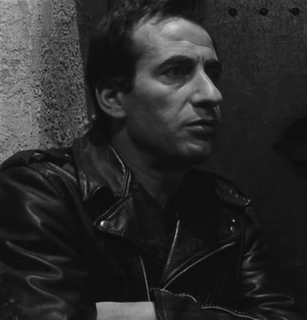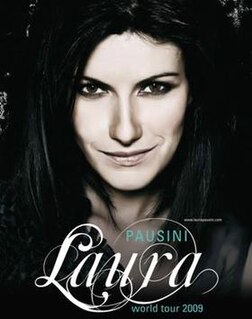Related Research Articles

Marco Masini, is an Italian singer-songwriter and musician.

Le Villi is an opera-ballet in two acts composed by Giacomo Puccini to an Italian libretto by Ferdinando Fontana, based on the short story Les Willis by Jean-Baptiste Alphonse Karr. Karr's story was in turn based in the Central European legend of the Vila, also used in the ballet Giselle. The opera, in its original one-act version, was first performed at the Teatro Dal Verme, Milan, on 31 May 1884. Le Villi is Puccini's first stage work. It was written for an 1883 competition of one-act operas by the publisher Sonzogno in his periodical Il teatro illustrato, but did not even earn an honourable mention. According to Mosco Carner, this may have been because it was written in such haste that the score was all but illegible. His supporters, who included Arrigo Boito, funded the first production, whose favorable reception led to publication by Giulio Ricordi. Puccini's mother received the following telegram on the night of premiere at the Teatro dal Verme on 31 May 1884: "Theatre packed, immense success; anticipations exceeded; eighteen calls; finale of first act encored thrice"'. Ricordi urged the composer to expand the work, and Puccini did, producing a new version later that year, which was followed by modifications in 1885, and the final version in 1889. A performance typically lasts 64 minutes.

The following discography contains information regarding some of the published recordings by Enrico Caruso made from 1902 through 1920 as have been made available in selected compact disc compilations.

Iva Zanicchi is an Italian pop singer and politician. She has a mezzo-soprano voice.

Antonio Esposito is an Italian musician, drummer and percussionist.

Virgilio Riento was an Italian film actor. He appeared in 108 films between 1936 and 1959.

Antonio "Toni" Ucci was an Italian actor and comedian. He appeared in 86 films between 1948 and 2000.

Adriana Benetti was an Italian actress.

L'Ipermestra is an 18th-century Italian opera in 3 acts by the Czech composer Josef Mysliveček composed to the libretto Ipermestra by the Italian poet Metastasio first set by Hasse in 1744. This opera belong to the serious type in Italian language referred to as opera seria.
"Sombre forêt" is a soprano aria from act two of the opera William Tell by Gioachino Rossini, to a French libretto by Etienne de Jouy and Hippolyte Bis. It is sung by Mathilde, a princess of the Habsburg house, as she waits in the forest on the heights of Rütli for her Swiss lover, Arnold Melchthal.

The LP World Tour 2009 was the fifth concert tour by Italian singer-songwriter Laura Pausini, starting in Brescia on 28 February 2009 and ending in Milan on 23 December 2009. This tour was in support of Pausini's album Primavera in anticipo / Primavera anticipada that was released in 2008.
Anna Sarfatti is an Italian writer of children's books.
Anna Maria Ramenghi is an Italian singer.
"Tu che le vanità" is an aria for soprano from the first scene of the final act of Verdi's opera Don Carlo. It is sometimes performed in recitals and featured in anthologies for dramatic sopranos. Sopranos also use it as an audition piece, as it displays the singer's high and low registers, forte and pianissimo volumes, legato bel canto singing technique, and several dramatic emotions such as reverence, longing, and resignation.
References
- ↑ "Torna ai felici dì".Aria database site. Retrieved 14 August 2018